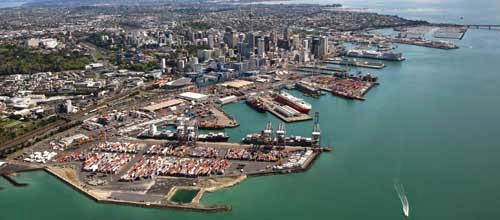and enterprises needs to be driven by seamless connectivity, observers have
said.
To that end, Nigeria has urged
countries on the African Continent to define their plans to attain the desired
goal by ensuring connectivity nationally, sub-regionally
and internationally.
In this regard, the Minister of State for
Transportation, Senator Hadi Sirika, said a multimodal, integrated and
sustainable transport system was required to foster quality connectivity within
the West and Central African sub-region and Africa entirely.
African Countries held in Abuja, noted that the ports alone were not enough to
connect to the markets.
modes, including road, rail and air transport, inland waterways and inland
ports were essential since trade logistics now involves door-to-door or factory
to warehouse movement of goods in international trade transactions.
for the adoption of a holistic approach towards addressing the challenges of
transport costs and connectivity.
such approach must take into consideration important issues as cost
effectiveness of shipping services, competitiveness and survival of national
and regional operators, efficiency of seaports, availability of coastal
shipping services, protection of shippers’ interest and partnership with
service providers.
Nigeria, an enabling environment for Public Private Partnership (PPP) was being
created by designing new policies, legislation and institutional framework that
would support the envisaged improvement on trade.
government of President Muhammadu Buhari was interested in addressing the
lingering challenges in trade and transport sectors of the nation’s economy.
thrust of the administration, he said, was to evolve a multimodal, integrated
and sustainable transport system with greater emphasis on rail and inland
waterways transportation in order to foster quality of connectivity within the
system.
transport remained an indispensable tool for international trade because of its
mode, operation and character, Sirika said opportunities, problems and policy
issues associated with it transcend national boundaries and could best be
handled in an integrated regional and international level.
address, the Executive Secretary, Nigerian Shippers’ Council (NSC), Mr Hassan
Bello, said the challenge of poor transport connectivity had been identified as
a major obstacle to the sub-Saharan Africa (SSA) countries realizing their
potential in both regional and global trade.
global supply chains, a new premium is being placed on being able to move goods
from A to B rapidly, reliably, and cheaply. Being able to connect to what has
been referred to as the “physical internet” is fast being a key determinant of
a country’s competitiveness”, he said.
transportation networks represent the economic arteries of countries and
regions, he said the network of transport routes and facilities all over the
world could be likened to an internet.
“As observed by experts, for those able to connect, the physical internet
brings access to vast new markets; but for those whose links to the global
logistics web are weak, the costs of exclusion are large and growing. Whether a
cause or consequence, no country has grown successfully without a large
expansion of its trade.”
most countries in the sub-region, including Nigeria, did not own fleets, adding
that with this, the sub-region was at the mercy of foreign shipping companies.
connectivity and lower the cost of transport, he called on African countries to
look very seriously at the areas of ship building and vessels ownership in
order to increase the number of vessels plying their waters with a view to
encouraging international trade.
“We pay dearly for poor connectivity by the fact
that while in developed economies freight as a percentage of the value of
imports is only about 3%, in developing economies it is about 10%.
“While for Africa, the figure is estimated at a
mind-bogging value of between 20% – 35%, especially for land-locked countries,”
he said

